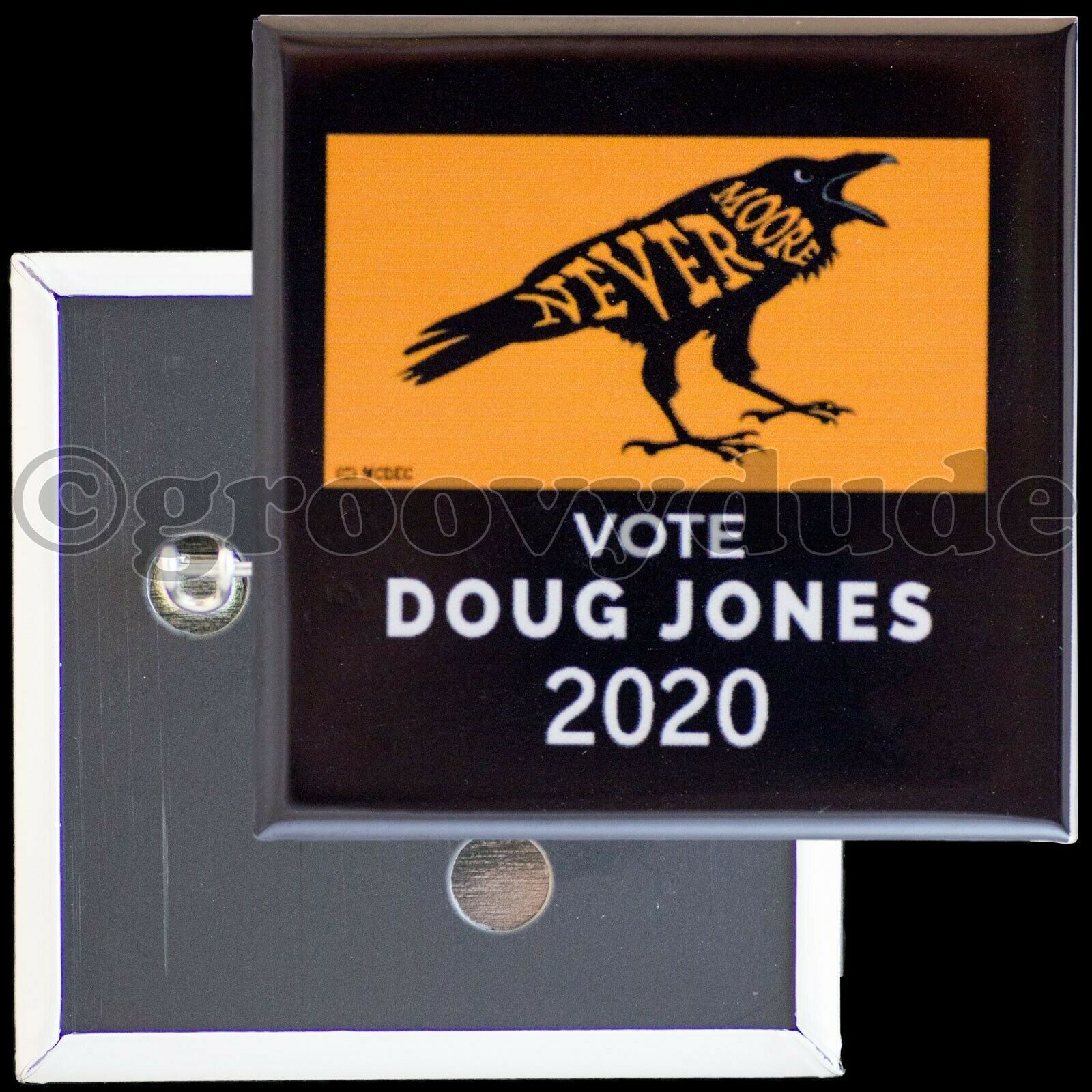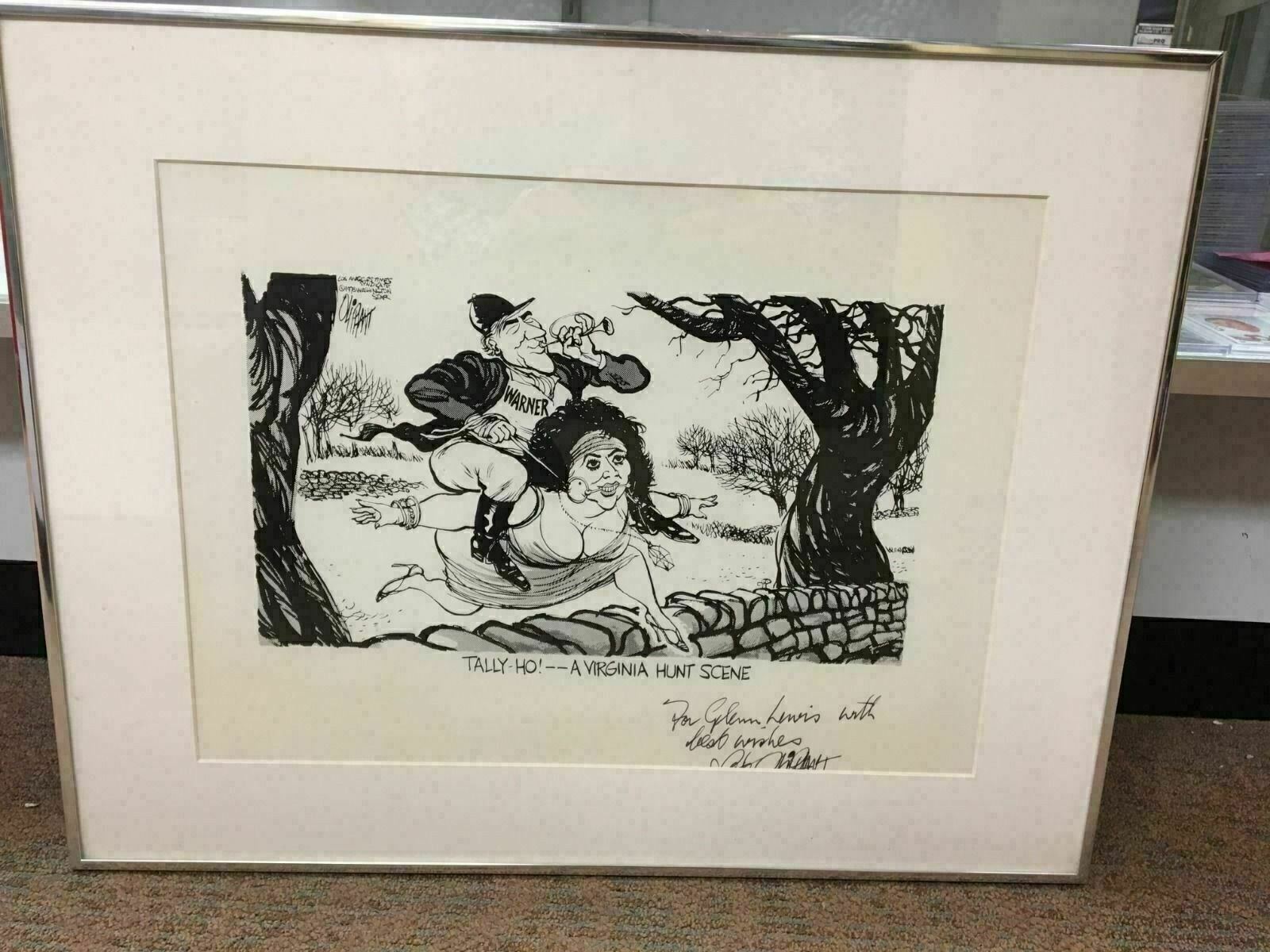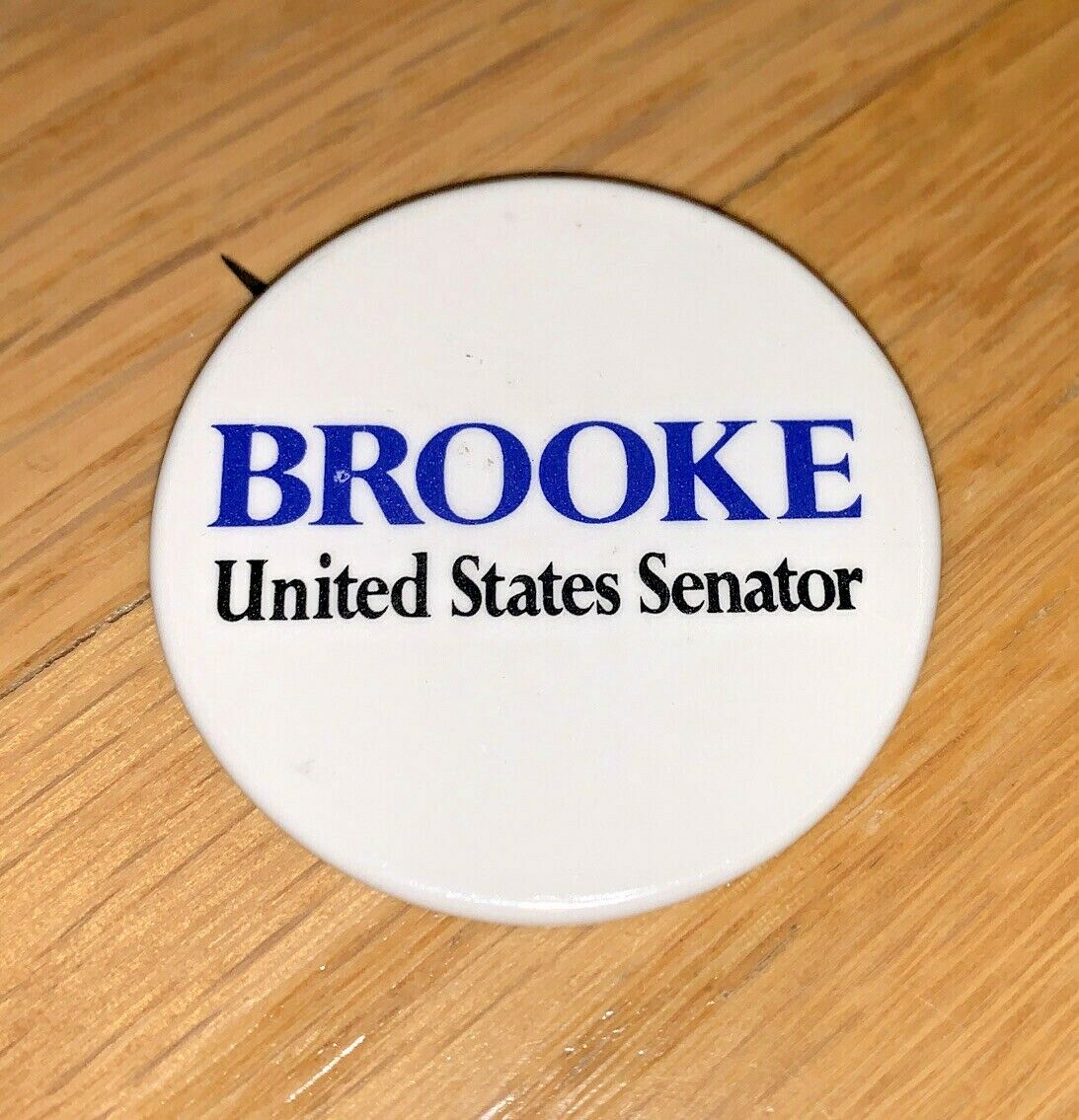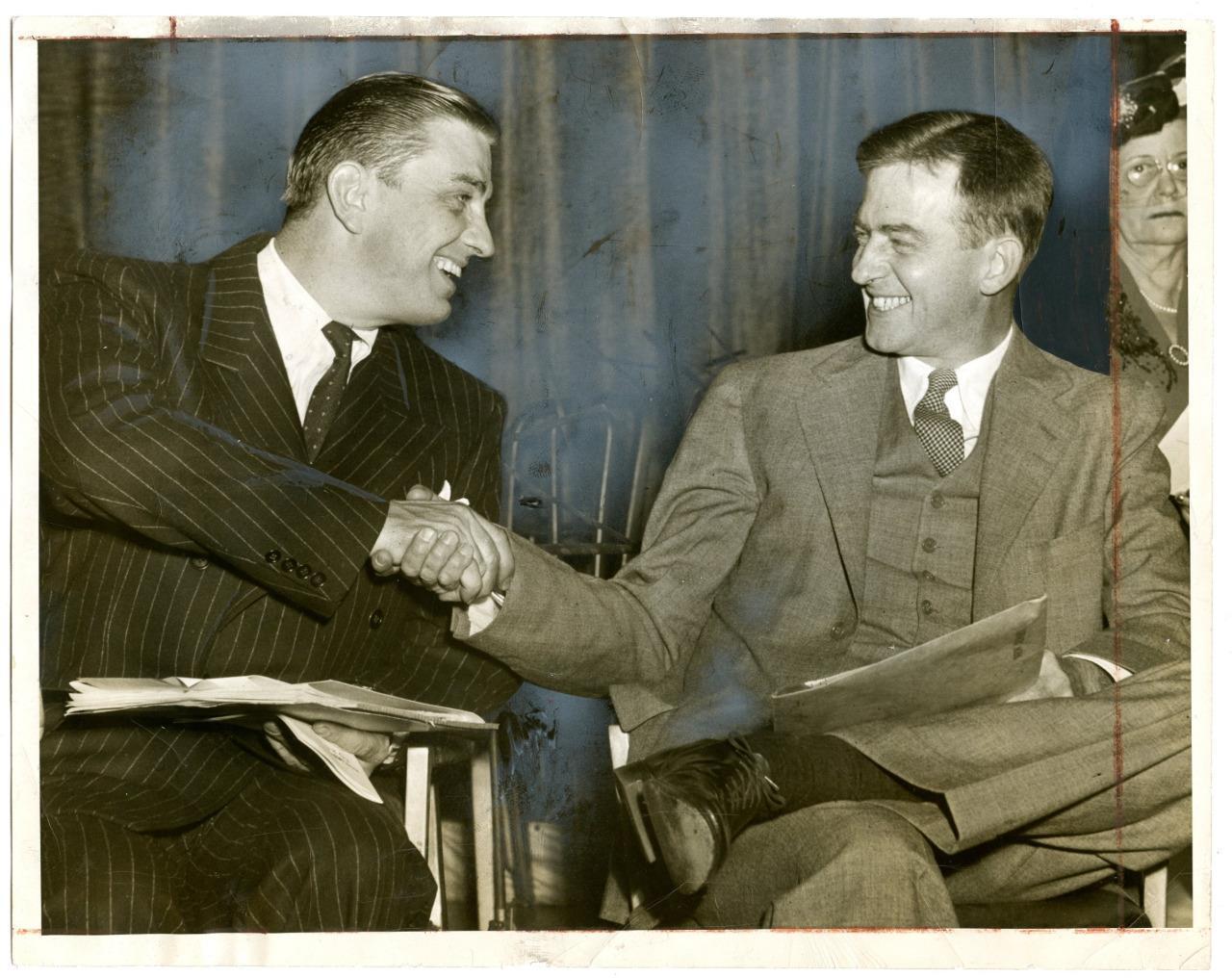-40%
SENATOR PRESIDENT PRO-TEM CONGRESSMAN NH SURGEON GENERAL GALLINGER LETTER SIGNED
$ 5.27
- Description
- Size Guide
Description
JACOB HAROLD GALLINGER(1837-1918)
POWERFUL UNITED STATES REPUBLICAN PARTY SENATOR FROM NEW HAMPSHIRE 1891-1918,
PRESIDENT PRO-TEMPORE OF THE UNITED STATES SENATE 1912-1913,
US CONGRESSMAN FROM NH 1885-1889,
MEMBER OF THE NEW HAMPSHIRE STATE SENATE and HOUSE OF REPRESENTATIVES 1872-1880,
SURGEON GENERAL and BRIGADIER GENERAL OF NEW HAMPSHIRE 1879-1880
&
NOTED DOCTOR OF HOMEOPATHIC MEDICINE!
<
<>
>
HERE A LETTER SIGNED BY GALLINGER ON “
UNITED STATES SENATE, CONFERENCE OF THE MINORITY
” LETTERHEAD
TO
CARL A. LOEFFLER
(1873 - 1968)
UNITED STATES SENATE SECRETARY IN 1947
WHEN CONTROL OF THE UPPER HOUSE RETURNED TO THE REPUBLICANS 1947-1949,
REPUBLICAN PARTY US SENATE SECRETARY 1929-1947,
ASSISTANT SERGEANT AT ARMS OF THE US SENATE 1928
&
SENATE PAGE and DOORKEEPER 1910-1928
In this letter, Sen. Gallinger writes Loeffler, (while he was serving as Senate Doorkeeper) saying, in full:
“My dear Carl- I wish you would have ny pair announced from time to time.
A telegram from Senator Smoot tells me that I have been excused from attendance on the Senate during the rest of the session, which is very gratifying. With good wishes, Sincerely yours, J. H. Gallinger”
The document measures 8” x 10½” and is in VG+ Condition, with a mounting strip on the upper margin on the verso.
BIOGRAPHICAL SKETCH OF THE HONORABLE
JACOB HAROLD GALLINGER
Jacob H. Gallinger
was the fourth son in a family of twelve children. At thirteen years of age (1850) Gallinger began a four year apprenticeship at a printing office; when he completed his apprenticeship (1854) he worked a year as a journeyman printer at Ogdensburg (NY).
He returned home in 1855, to work as printer and editor of the newspaper where he had apprenticed; later that year he moved to Cincinnati (OH), where he studied medicine while working at the Cincinnati Gazette. Gallinger graduated as valedictorian of his class (1858). In July 1860 Dr. Gallinger came to Keene (NH), and in Fall 1861 he went into medical practice with Dr. W. B. Chamberlain. Gallinger also became a convert to homeopathic medicine. He moved to Concord (NH) in Spring 1862, and he practiced homeopathic medicine successfully for many years. He became president of the New Hampshire Homeopathic Medical Society, and received an honorary degree from the New York Homeopathic Medical College (1868).
Dr. Gallinger began his New Hampshire political career as moderator for Concord's Ward Four. He was elected to the State House of Representatives (1872), and served as Chairman of the House Committee on Insurance; reelected in 1873, he served as Chairman of the House Committee on Banks. At the 1876 State Constitutional Convention, Gallinger's proposal to tie representation to population in the State House of Representatives carried by a wide margin; this system is still operative today. Gallinger was elected to the State Senate (1878), and served as Chairman of the Senate Committee on Education. He was reelected in 1879, and chosen President of the Senate (1879/80), while also serving as Surgeon General of New Hampshire. In this latter position he was also appointed a Brigadier General. He was Chairman of the Merrimack County Republican Committee, then Chairman of the State Republican Committee (1882/90).
He served two terms in the United States House of Representatives (1885/9), and led the state delegation at the 1888 Republican National Convention. Declining to run for a third term as a New Hampshire congressman, Gallinger was subsequently elected to the United States Senate, where he served four consecutive six-year terms, from 1891 until his death in 1918. He also served as Chairman of the Republican Caucus (I 913/ 1 8), and was active on several congressional committees.
Bibliography:
American National Biography; Dictionary of American Biography; Schlup, Leonard. "Consistent Conservative: Jacob Harold Gallinger and the Presidential Campaign of 1912 in New Hampshire." International Review of History and Political Science 21 (August 1984): 49-57; U.S. Congress. Memorial Services for Jacob Harold Gallinger. 65th Cong., 3rd sess., 1918-1919. Washington, D.C.: Government Printing Office, 1919.
BIOGRAPHICAL SKETCH OF CARL A. LOEFFLER
Secretary of the US Senate 1947-1949
Almost certainly, no one alive knows quite so much as he about the operations of the Senate," wrote
The New York Times
' congressional correspondent William S. White. On January 4, 1947, when Senate Republicans elected 74-year old Carl A. Loeffler secretary of the Senate, most Capitol Hill insiders shared this opinion of the Senate's new chief administrator. Loeffler had been a Senate employee for fifty-eight years!
In style, manner, and personality, Carl Loeffler stood in sharp contrast to his immediate predecessor, Leslie Biffle. Biffle personified the old-line wheeler-dealer who enjoyed socializing on an equal footing with influential Washingtonians from senior senators to the president of the United States. By contrast, Loeffler followed in the more reserved manner of a valued, senior employee. Described as "neat, gray, and affably punctilious," Loeffler impressed senators of both parties as able, conscientious, and discreet.
Born in 1873, the future secretary grew up in the nation's capital. His father, a German immigrant, had made his career in the army. A veteran of the Civil War and conflicts with American Indian tribes, Major Charles Loeffler served as White House head doorkeeper from the days of Ulysses Grant thorough the administration of Theodore Roosevelt.
In 1889, Major Loeffler decided it was time for his fifteen-year-old son to broaden his educational horizons as a Senate page. He contacted Pennsylvania Senator Matthew Quay, a family friend, who agreed to see the young man. Many years later, Loeffler recalled in Dickensian tones his fearful excitement in reporting to Senator Quay's Capitol office. "The door opened and a man entered. `You are young Loeffler?' The only reply that a palpitating heart permitted was, `Yes, Sir.' So this was a Senator." To arrange for Loeffler's appointment, Quay summoned the sergeant at arms. The fifteen-year-old was mystified. "What an unusual title was that? Was the Sergeant-at-Arms a sort of military man in uniform and gold braid?" When that officer arrived, he informed the senator that there were no vacancies for a page. Ignoring the sergeant at arms, Quay turned to Loeffler and told him to report for duty.
On Loeffler's first day as a Senate employee, Quay offered the following advice: "My boy, if you wish to succeed, keep your eyes and ears open, and your mouth shut." Years later Loeffler remembered that the senator's advice "made a profound impression on the lad, was observed by him, and in later years, as he rose through several appointive places to elective office [as secretary], he attributed his long retention in the service of the Senate to be largely due to heeding the well meant and wise advice of his benefactor."
One of Loeffler's first duties as a page was to assist the Senate's telephone operator, Louise DeMunn. (DeMunn and an attendant in the Ladies Retiring Room were the Senate's only female employees in 1889.) Senators used this new communications instrument much as they had the telegraph. Desiring to send a telephone message, they went to the sergeant at arms' office, adjacent to the Reception Room in S-212, and either handed DeMunn a written message or told her whom to contact and what to say. The operator then made the call.
When DeMunn left the following year to get married, Loeffler began his "move through several appointive places" by taking her job. When not on duty, he attended and subsequently graduated from Washington's Spencerian Business College and The George Washington University. In 1910, Loeffler advanced to the post of assistant doorkeeper, where he remained through several changes in party control until his 1928 appointment as assistant sergeant at arms. A year later Senate Republicans elected Loeffler their party secretary. After eighteen years in that office, Loeffler won election as Senate secretary in 1947, when control of the upper house returned to the Republicans.
As Loeffler took office, the recently enacted Legislative Reorganization Act of 1946 was beginning to have a major impact on congressional operations. Under its provisions, members and committees were permitted to hire professional staff–a congressional first. Eliminating many non-functioning committees, the statute reduced the number of Senate standing committees from thirty-three to fifteen. In the minority for the past sixteen years of the New Deal and World War II periods, Senate Republicans hoped to ride a wave of protest against postwar economic conditions and unpopular Truman administration policies to allow their party to capture the White House 1948. The Eightieth Congress–the first in fifty years controlled by a party other than the president's–proved to be highly contentious, with President Truman vetoing seventy-six acts and calling extra sessions during both years. Despite all predictions, the 1948 elections returned Truman to the White House and the Democrats to majorities in both houses of Congress. Consequently, Carl Loeffler's long preparation to be secretary yielded only a brief two-year term. His predecessor, Leslie Biffle, became his successor and Loeffler retired to write his memoirs.
In 1980, Loeffler's daughter donated to the Senate Historical Office a six-hundred-page typescript copy of his memoirs. Until modern-era former secretaries began to participate in the Historical Office's oral history program, Loeffler's unpublished memoir stood alone as an account of Senate operations from a secretary's perspective. Of particular interest is his description of the Senate as he found it in 1889. Following a pattern evident in the recollections of generations of members and staff, he remembered the earliest days as the best days. In his opinion, the Senate of 1889 was one of the finest ever—"an assembly of intellectual giants from all sections of the country." Because those senators owed their election to their state legislatures, Loeffler noted that "they were not under the pressure of minority groups or interests, and in consequence were very much more free [than in later times] to assert an independent attitude on legislation." They had very little contact with their constituents while in Washington, either in person or by mail; twelve letters a day was considered a deluge. He continued, "They were not plagued by the press as now, and they did not seek the publicity that a modern legislator craves." Twenty years before the opening of the first Senate office building, senators prepared much of their correspondence "while at their desks in the Senate chamber. They dressed in formal attire and maintained at all times a reserve and a dignity."
Consistent with Carl Loeffler's Senate longevity record, he lived nearly two decades beyond the end of his Senate service. On January 30, 1968, seventy-nine years after his first trembling encounter with the United States Senate, the ninety-five-year-old former page and secretary died peacefully.
<>
"In Conference"
The Secretary of the Senate is a very busy man,
He sees as many callers as he possibly can.
He also invites Senators and quite a lot of friends
To eat with him at lunch-time and thus the morning ends;
But as the hours lengthen in his very active day,
He dictates to his secretary to wile the time away.
The hours drag until adjournment brings the session's end
`Tis then he seeks seclusion and his shattered nerves to mend.
The little maid who sits without the Secretary's door
Is quite stoic in the way she'll work an hour or more.
She'll guard against disturbing him with a zeal that is intense
By telling all his callers that he's now "in con-fer-ence"
Carl A. Loeffler, "Memoirs" (1949)
I am a proud member of the Universal Autograph Collectors Club (UACC), The Ephemera Society of America, the Manuscript Society and the American Political Items Collectors (APIC) (member name: John Lissandrello). I subscribe to each organizations' code of ethics and authenticity is guaranteed. ~Providing quality service and historical memorabilia online for over twenty years.~
WE ONLY SELL GENUINE ITEMS, i.e., NO REPRODUCTIONS, FAKES OR COPIES!











